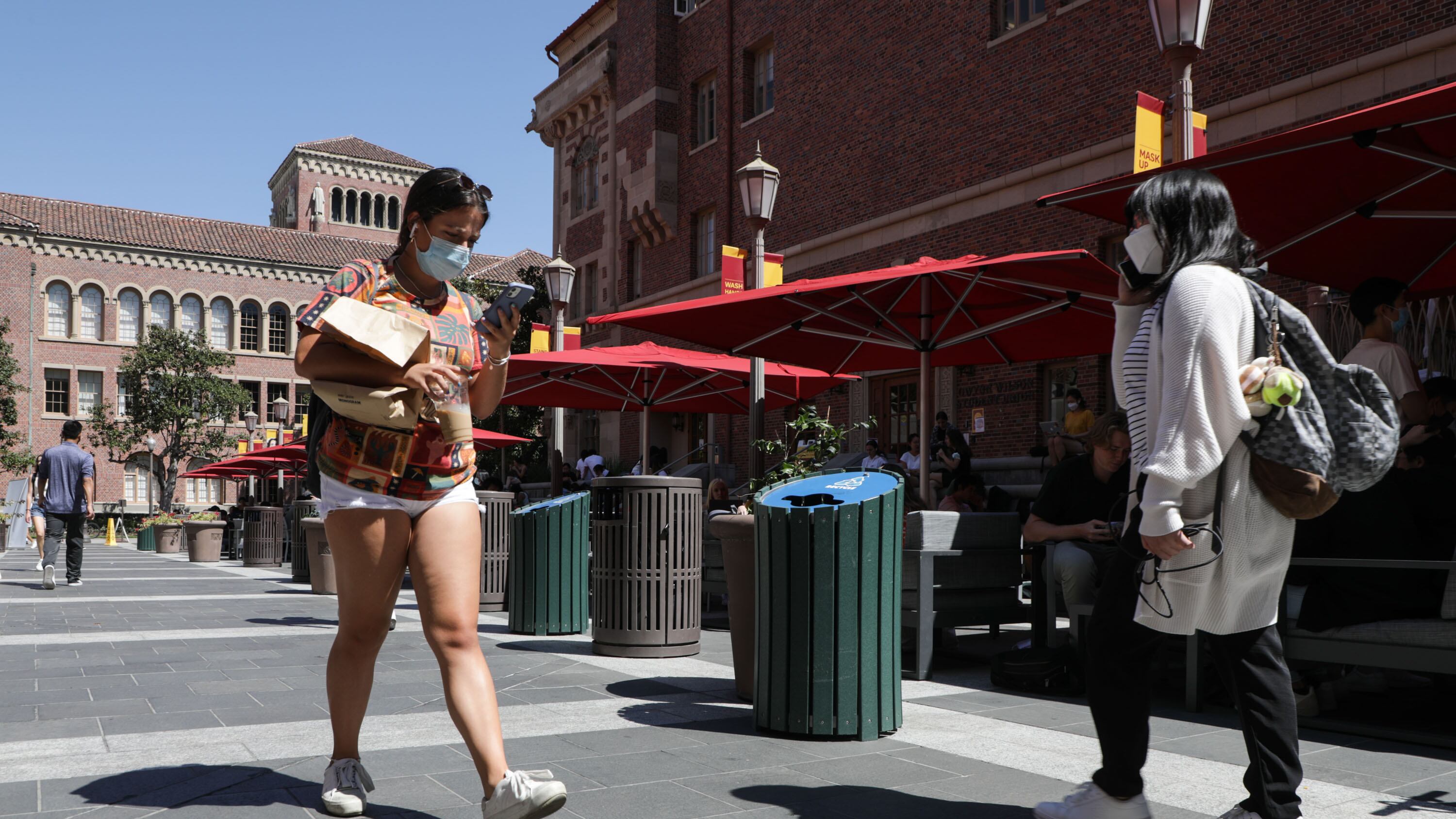With Green Week in full swing, the university is working to engage the Trojan community in its eco-friendly efforts. But there’s a chasm between the university administration and students on how difficult it is to reduce landfill waste on campus.
In recent years, sustainability has been a hot-button issue at USC. The university planned to divert 75% of waste from landfills by 2020 but reported only 33.7%. Despite missing their goal by a large margin, which could partially be credited to a change in how the university calculates waste metrics, the institution has made serious efforts in minimizing its environmental impact.
According to the 2015-2020 Sustainability Report, USC has installed 185 interior waste bins, which have compartments for various types of waste, and diverted over 1,000 tons of waste from landfills since 2016 under the Coliseum’s Zero-Waste Program. USC also created new positions such as the zero-waste auditor and the school’s first Chief Sustainability Officer, Michael Dalrymple.
However, students claim the university could do more to make sustainability easier. “I feel like they’ve made progress,” said Bradley Louie, a junior bio-chem major. “But on campus it’s kinda hard to recycle.”
Louie said it’s difficult to find a recycling bin sometimes, even after the addition of more waste bins. “I saw before they took out the trash, there were just all kinds of things you could just recycle in there: bottles, plastic containers and papers,” Louie said. “That stuff could easily be recycled if you just had a can right next to it.”
Gina Whisenant, the Waste and Recycling Supervisor for USC Facilities Management and Planning, said the university is working hard to make recycling more efficient on campus, but it’s a difficult feat to accomplish.
“The previous bins were serviced by our grounds crew with their dump scooters and directly dumped into the trash compactors on campus,” Whisenant said.
Now, instead of taking one trip to dump trash into compactors on campus, the separate waste categories mean their work has tripled.
Although not every student may recognize how demanding the switch to sustainability has been, Whisenant said she believes USC is going in the right direction. “Changing behaviors is one of the hardest things to accomplish,” Whisenant said, “but these bins are the first step in setting the expectation of a zero-waste campus.”
Regardless, some students are concerned with keeping their campus clean. Delia, a worker with USC Hospitality, has had good experiences while working with the Trojan family. “From what I’ve seen, [students] always pick up their trash,” she said.
Whisenant reminds students that “change starts with action.”
“Check out the signage and ask questions. Above all else, whenever possible refuse, reduce, and reuse,” Whisenant said. “These are the first and most important components in the recycling hierarchy and the most conducive to a zero-waste environment.”
Delia is a university employee and asked to withhold her name due to job security.
